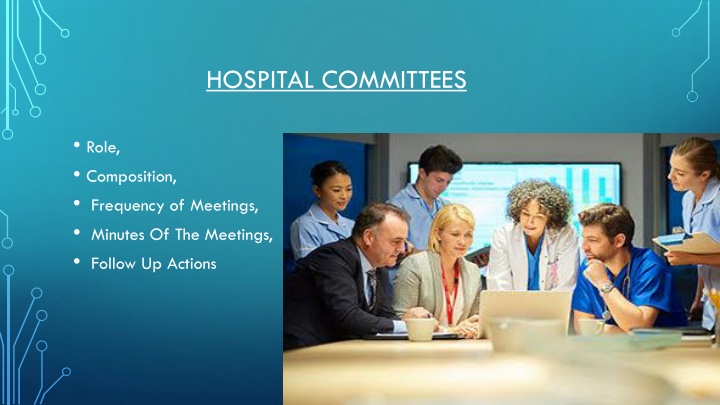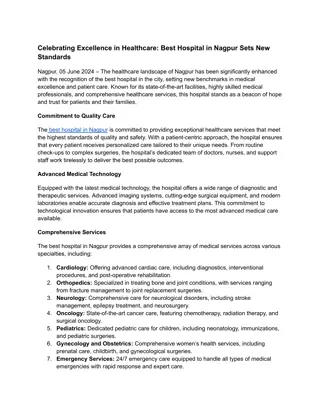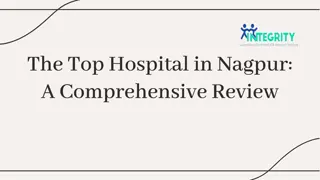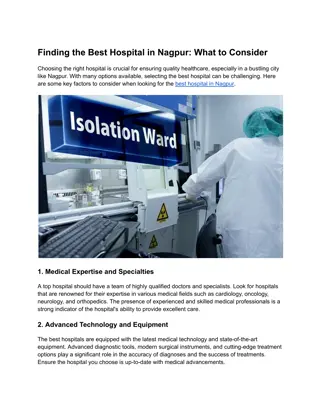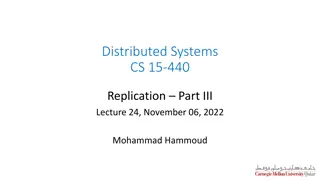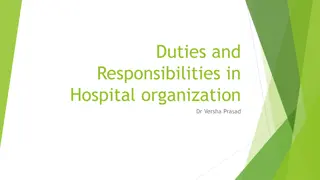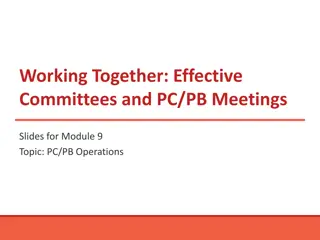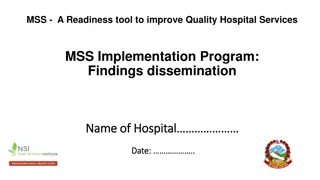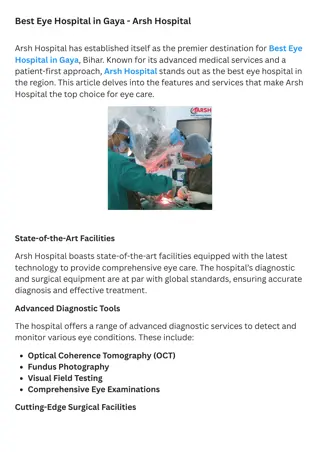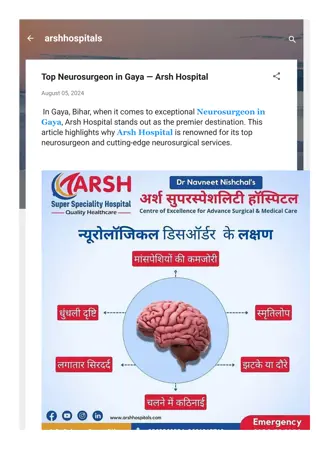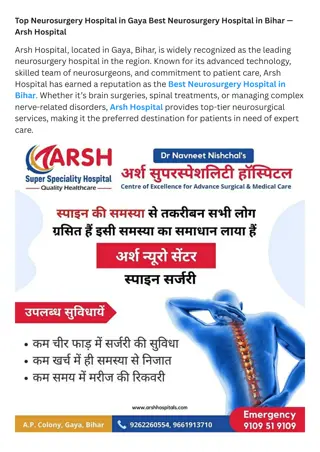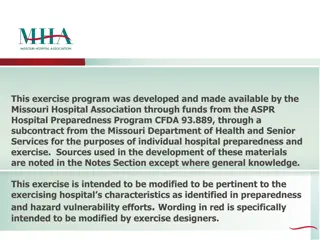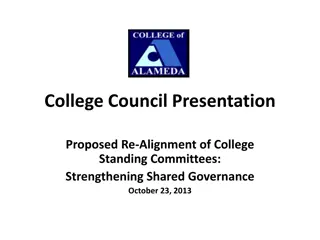Hospital Committees: Role, Composition, and Meeting Protocols
Hospital committees play a crucial role in ensuring safe and high-quality patient care, compliance with regulations, and effective management of resources. Various types of committees are essential, each with specific responsibilities. Criteria for forming committees include defining scope, selecting appropriate members, setting meeting frequency, and establishing rules. Meetings should have set agendas, allow all members to participate, assign responsibilities, document minutes, and maintain attendance records.
Download Presentation

Please find below an Image/Link to download the presentation.
The content on the website is provided AS IS for your information and personal use only. It may not be sold, licensed, or shared on other websites without obtaining consent from the author.If you encounter any issues during the download, it is possible that the publisher has removed the file from their server.
You are allowed to download the files provided on this website for personal or commercial use, subject to the condition that they are used lawfully. All files are the property of their respective owners.
The content on the website is provided AS IS for your information and personal use only. It may not be sold, licensed, or shared on other websites without obtaining consent from the author.
E N D
Presentation Transcript
HOSPITAL COMMITTEES Role, Composition, Frequency of Meetings, Minutes Of The Meetings, Follow Up Actions
ROLE To ensure safe high quality patient care. To prepare annual budget. To ensure the hospital provides care treatment and services in accordance with laws, rules and regulation and Licenses. To ensure adequate space and equipment are available for patient care .
Types of Committees Required 1. Quality and safety committee 2. Infection committee 3. Pharmacy and therapeutics committee 4. Blood transfusion committee 5. Medical records committee Beyond these 5 committees to be handled by Quality and Safety Committees
Criteria For Forming A Committee Scope of committee should be defined properly Members of committee according to the nature of committee Frequency of meeting should be defined Emergency meeting can be called by chairperson House rules to be set
FREQUENCY OF MEETINGS Meeting cadence refers to the frequency of team meeting or how often recurring meeting are held. Some common meeting cadences are daily, weekly, bi-weekly, monthly, and bi-monthly, and quarterly.
During Meeting Each agenda should be discus appropriately Each and every member should be given opportunity to give his opinion Responsibility given to concern person with defined time frame for each task Minutes of meeting should be documented Attendance list should be signed by each participant
MINUTES OF THE MEETING Meeting minutes also called meeting notes, are the written record of everything that happened during a meeting . They are not the same as the meeting agenda which is prepared in advance and refers to the list of activities that participants are hoping to accomplish during their meeting.
A Meeting Minutes Summarize The Key Issues Discussed . Minutes Will Generally Be In Bullet Point From And Will Note Any Decisions Made Or Conclusions Stated During The Meeting. Different types of minutes Action minutes Discussion minutes Verbatim minutes
FOLLOW UP ACTIONS An action or thing that serves to increase the effectiveness of previous one . When applied to investing and trading , this means adding or changing a position or strategy to revise it risk profile or expected returns
CONCLUSION Committees monitor on-going operations identify issues suitable for legislative review gather and evaluate information and recommend courses of action to the senate.
